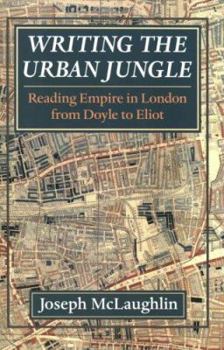Writing the Urban Jungle: Reading Empire in London from Doyle to Eliot
Select Format
Select Condition 
Book Overview
Much has been written about cultural imperialism and the effects of Britain and British culture on colonized people, but Joseph McLaughlin suggests that the influence worked both ways. Focusing on the relationship between the literature of British imperialism and turn-of-the-century metropolitan culture, Writing the Urban Jungle offers an account of the cultural confusion caused by bringing the foreign home. Narrative, plots, and language formerly used to describe the colonies, McLaughlin argues, became ways of reading and writing about life in London, "that great cesspool into which all loungers and idlers of the Empire are irresistibly drained," as Arthur Conan Doyle's Dr. Watson describes it in A Study in Scarlet (1887), the initial Sherlock Holmes tale. Canonical and popular literature by Doyle, Margaret Harkness, Joseph Conrad, and T. S. Eliot, and the literature of social reform and urban ethnography by General William Booth of the Salvation Army and Jack London all display this inversion of colonial rhetoric. By deploying the metaphor of "the urban jungle," these writers reconfigure the urban poor as "a new race of city savages" and read urban culture as a "Darkest England," an Africa-like place rife with danger and novel possibilities. Drawing from and extending the field of criticism pioneered by Edward Said, Writing the Urban Jungle presents a powerful new paradigm for reading late-Victorian, modernist, and postcolonial literary and historical texts. It also provides a fresh tool for urban anthropologists working in our own fin-de-si cle.
Format:Paperback
Language:English
ISBN:081391972X
ISBN13:9780813919720
Release Date:March 2000
Publisher:University of Virginia Press
Length:234 Pages
Weight:0.88 lbs.
Dimensions:0.7" x 6.2" x 9.1"
Grade Range:Postsecondary and higher
Customer Reviews
0 rating





